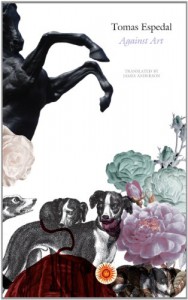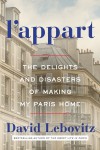19
Followers
19
Following
M Sarki
Besides being a poet with four collections published, M Sarki is a painter, film maker, and photographer. He likes fine coffee and long walks.
M Sarki has written, directed, and produced six short films titled Gnoman's Bois de Rose, Biscuits and Striola , The Tools of Migrant Hunters, My Father's Kitchen, GL, and Cropped Out 2010. More details to follow. Also the author of the feature film screenplay, Alphonso Bow.
Currently reading
L'Appart: The Delights and Disasters of Making My Paris Home
We Learn Nothing: Essays
Elmet: LONGLISTED FOR THE MAN BOOKER PRIZE 2017
Limbo, and Other Places I Have Lived: Short Stories
The Double Life of Liliane
At Home with the Armadillo
American Witness: The Art and Life of Robert Frank
Autumn
Inside Out: A Personal History of Pink Floyd (Reading Edition)
American Witness: The Art and Life of Robert Frank
Against Art: (The Notebooks)
 http://msarki.tumblr.com/post/89708513903/against-art-by-tomas-espedal
http://msarki.tumblr.com/post/89708513903/against-art-by-tomas-espedal
The first sentence must be soft.
Of course, I do not at all agree with the above statement. My own writing instruction impressed upon me by a teacher infamously tyrannical in his editing, as well as with his friends, taught me to instead be hard. No matter what, you must be hard and stay hard. He said there would be no other chance in which to be heard unless the sentence was a strong one and unexampled in its feeling. But certainly Tomas Espedal has every right to speak his mind and relate his experience as a writer and as a friend. Except Espedal, and his friends, for the most part, remain hidden inside his head and between the pages of the books he has read and written. And he is not at all unlike myself except in matters of my own virtual online relationships nurtured within a select group of like-minded readers. And there is nothing wrong with this scenario either.
Against Art is a book I will most likely read again. There was much I lost in the opening pages and it took me most of the book to catch up and get the gist of what he was perhaps getting to. Because I have not been properly introduced to this Norwegian writer prior to my reading of this particular title, I have no frame of reference in which to judge this book beyond the words in it and the dust jacket cover. It seems he passes the Sarki audition. And I want to believe that Espedal is an important writer and one I will hear and read much more from in the near future. Until then I will have to wait to draw a more educated and informed conclusion. I do know he once agreed to dress up in a white wedding gown and pose for a young woman’s art project. Me thinks he must be comfortable in his skin or at least willing to manifest a fellow Hemingway proclivity. His mother supposedly read many books written by progressive women writers and Tomas gobbled them up as soon as she was finished reading them. He purportedly read so many of these so-called feminist writers that he at one time wanted to be a woman himself. If memory serves his fantasy lasted all of two months.
So how much of Espedal’s writing is fiction or some myth he might be perpetrating? And does it even matter in the long run what is and what isn’t? The sentences are either good or they are found lacking. The text either follows us after the end or it hides inside the countless other books that have already been written. Espedal claims in his journal here to want to write novels that are poetic. That is an admirable and lofty idea, and one that is harder to do I think than simply putting down a good story. But that is coming from a poet like myself who has his own lofty goals and has yet to achieve a final satisfaction on his page. Though a translation from the original Norwegian, Against Art came across to me as something quite outstanding on its own in a language well-written that surprisingly left me feeling satisfied.







